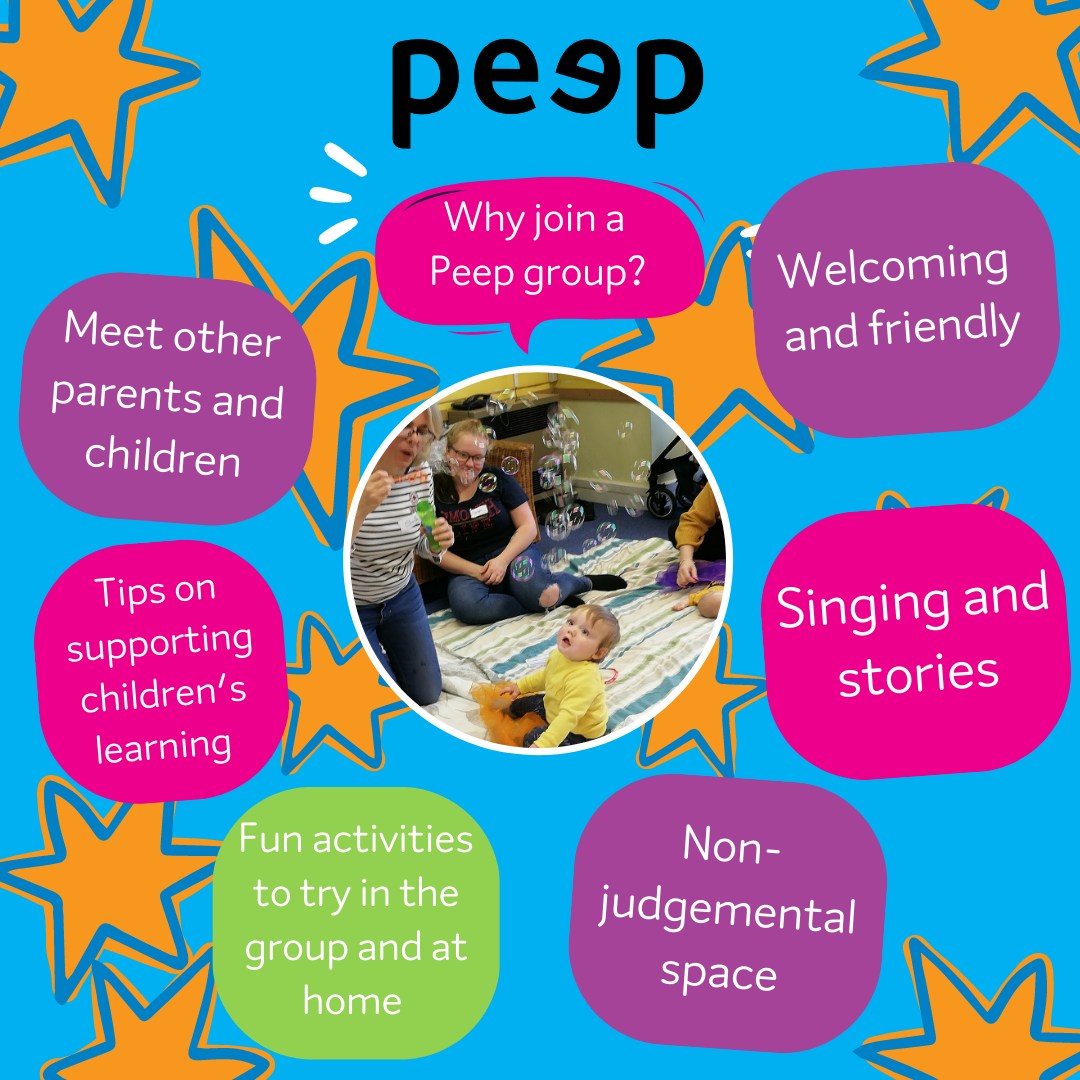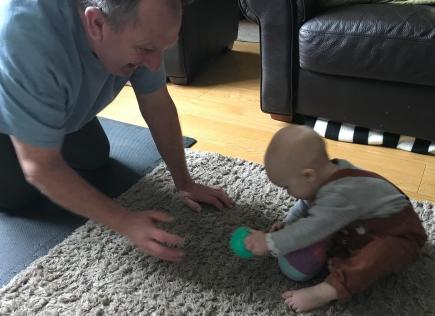What is Peep? - intro for parents and carers
Our four-minute 'What is Peep?' video shows Peep groups with families, babies and toddlers, and you'll hear from Peep practitioners and parents:
You can also see a shorter 2-minute version here: 'What is Peep? Two-minute snapshot video'
Peep groups are for parents and carers and their young children - some are for babies, toddlers, pre-schoolers (3-5) or young school-age children, while others are for mixed age children.

In Peep groups, practitioners and families share ideas and simple, low-cost activities that support your child’s learning in everyday life - talking, singing, sharing books and playing together. They're also a great way to get to know other families.
As a parent or carer, your baby or child will already be learning so much from you, as you chat, play, sing, cuddle, and do all your usual day-to-day activities. Research shows that these things that you do together have a big impact on how children's brains develop in these early years, and on how they get on at school and in later life.
By emphasising the importance of parents, it doesn't mean that it's your fault if things don't always turn out as you hoped! There are lots of influences and things going on in children's and our busy lives. It doesn't matter how you got on at school, or whether you're a stay-at-home parent/carer or you go out to work - you're just as important to your child. There's no such thing as a perfect parent - being a parent or carer is about enjoying the up times and helping each other through the down times, not about feeling guilty.
Peeple is a not-for-profit charity. We developed the Peep Learning Together Programme and the Peep Antenatal Programme, and we train practitioners from around the UK, Ireland and Australia. Contact your local children's or family centre or hub, nursery or family information service, to see if there are Peep sessions near you.
We share tips and ideas to support children's development on our social media pages - @PeepleCentre on Facebook, Instagram and Twitter. Do join us there, or check out a few Peep tips here. You can also find some parents' experiences here.
Families support children's learning in lots of ways:
- chatting to your baby or child, and leaving gaps for them to respond, even if they can't talk yet. Babies quickly pick up on facial expressions, body language and tone of voice, and will soon start to respond with their own sounds and movements
- singing your favourite songs
- looking at books or pictures together
- playing during or between your day-to-day activities. Walking to the shop can become a game by looking out for round shapes or red cars, or listening out for different sounds, etc.

